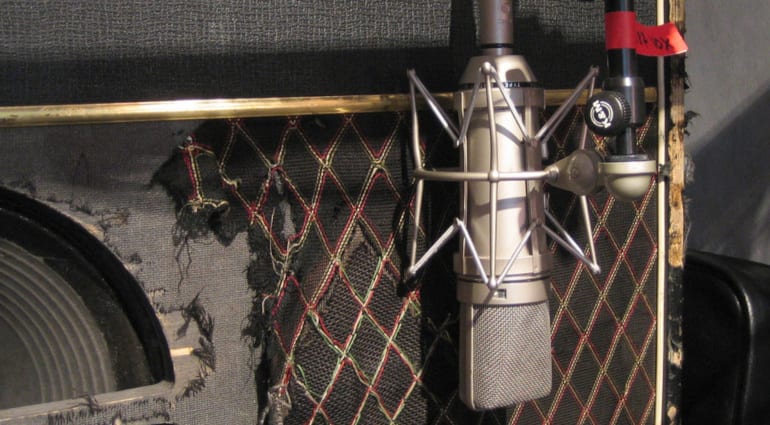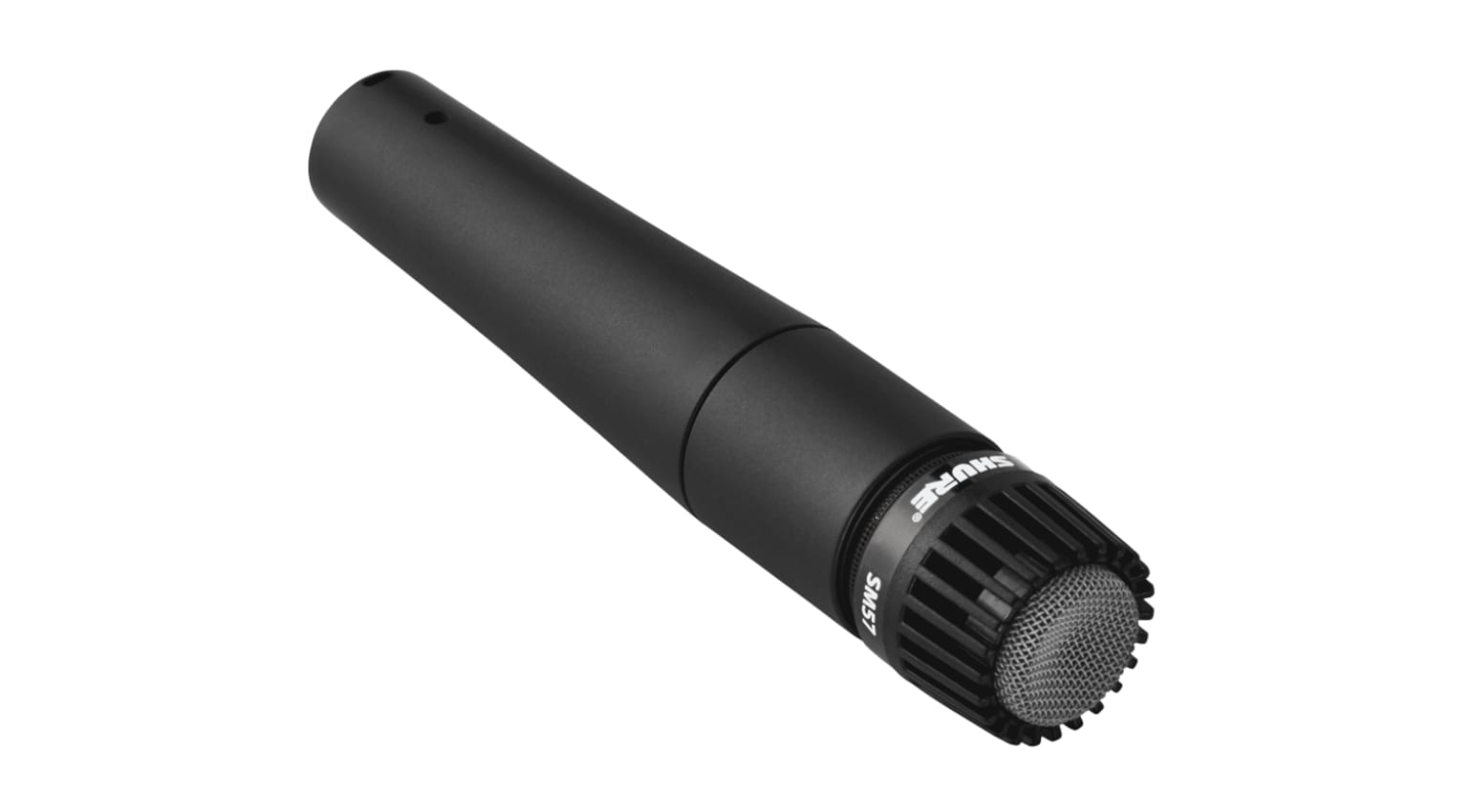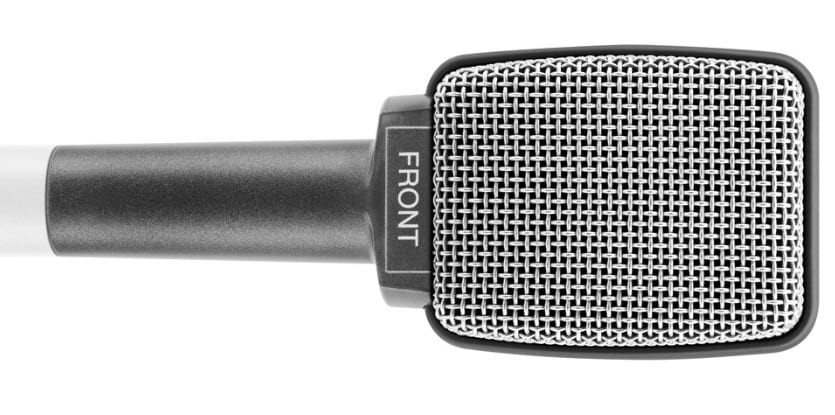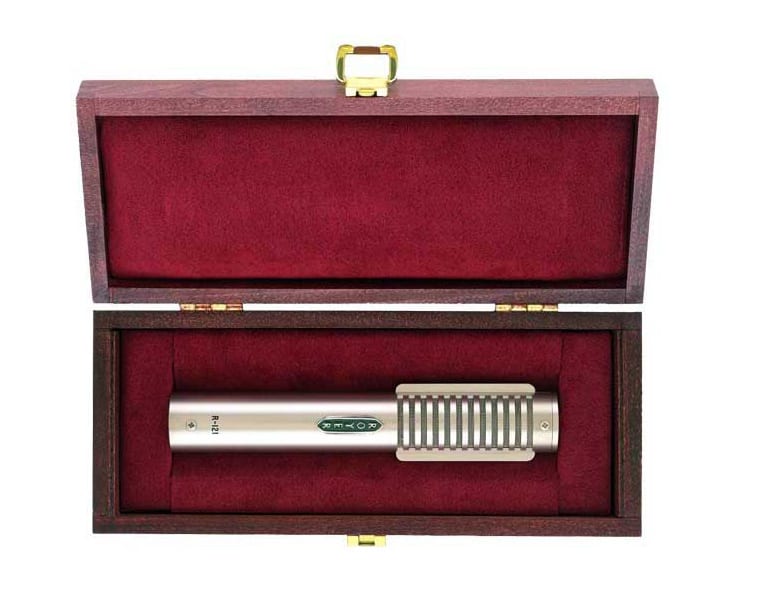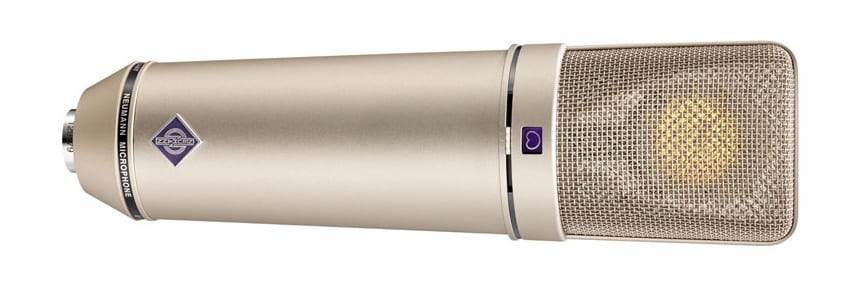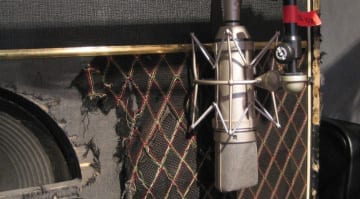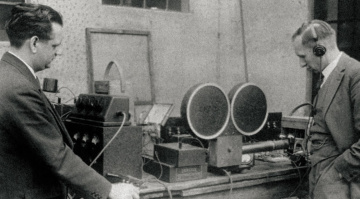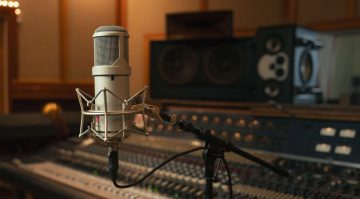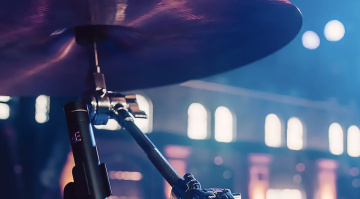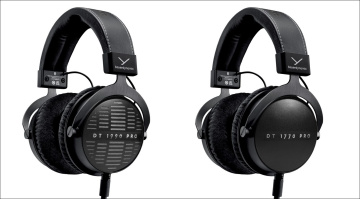5 guitar recording microphones for any budget
You’ve got your guitar and amplifier, you just got an audio interface and a DAW, and now you’re looking for a microphone to record that guitar onto your computer. Here’s a small list of guitar recording microphones we compiled that should help serve as a guide on your quest.
Types of microphones
Microphones come in three basic types. Dynamic, Condenser and Ribbon.
Dynamic microphones are usually pretty sturdy, but not particularly sensitive. This makes them very useful for loud instruments, and pretty versatile in a variety of settings. They usually have a unidirectional, or cardioid pattern, making them ideal for live situations or untreated rooms. You’ll find that dynamic microphones are the most common types of mics on guitar amps.
Condenser microphones tend to be a bit more fragile than dynamic microphones, but are able to deliver a much clearer sound. Unfortunately, this does tend to make them slightly more expensive than dynamic mics. They usually have an option that allows them to switch between cardioid, bidirectional and omnidirectional patterns, making them quite versatile.
Ribbon microphones are the most delicate and expensive of the three. And extremely sensitive. Because of their bidirectional pattern, you often need a well treated room when using them. Ribbon mics are known for their warm and ‘vintage’ sounds.
Shure SM57 – The standard
If you don’t already own a Shure SM57, you should really try and get yourself one. It’s a staple in almost every studio on the planet, and also popular among US presidents. This humble and affordable microphone is responsible for capturing the sounds heard on countless numbers of songs. The SM57 is a versatile dynamic microphone that can be used not only for guitar amps, but pretty much anything you can throw at it. If you plan on buying just one microphone for your setup, make it this one.
Sennheiser E609 – Just guitar
If you’re not fussed with owning a multi-purpose microphone, you could have a look at the Sennheiser E609. Unlike the SM57, the E609 has been designed specifically for guitar amps. Because of its flat shape, you can hang the mic by a cable from the top of your amp, eliminating the need for a stand. The E609 has a supercardioid polar pattern which allows for near perfect isolation, ideal for live situations or other places with unwanted sounds. It also has a hum-compensating coil, which blocks out interference from nearby sources. If you’re only ever going to record your guitar amp, then this is probably the way to go.
Royer 121 – Choice Ribbon
Traditionally, ribbon microphones were the norm before the 60’s, after which dynamic and condenser microphones started becoming more common. As far as ribbon mics for guitars are concerned, you can’t go wrong with a Royer 121. Again, an industry standard, and used to record innumerable guitar amplifiers, the Royer 121 is in every well-respected guitarist/engineer’s arsenal. Unfortunately, it is priced accordingly.
Neumann U87 – Money’s no object
If money’s no object, have a look at the Neumann U87. This legendary large-diaphragm condenser microphone will be found in all the top studios and is universally regarded as one of the best microphones ever made. Unfortunately, it costs more than some peoples’ home studio setups. A great unit to record your amp with, if you can afford it.
Beyerdynamic 160 – Eddie’s choice
If the Royer 121 and Neumann U87 are out of your budget, and you already own a dynamic microphone, check out the Beyerdynamic M160. These ribbon microphones were the tools of choice for one Eddie Kramer when he was recording guitar for Led Zeppelin and Jimi Hendrix. The M160 is supposed to be his absolute favourite. Fortunately, it comes in at a fraction of the price of the Royer 121, and if it’s good enough for Eddie Kramer, it should be good enough for you.
Once you’ve picked your microphone, be sure to check out our other article on how to record guitars at home. Happy recording!
 5,0 / 5,0 |
5,0 / 5,0 | 